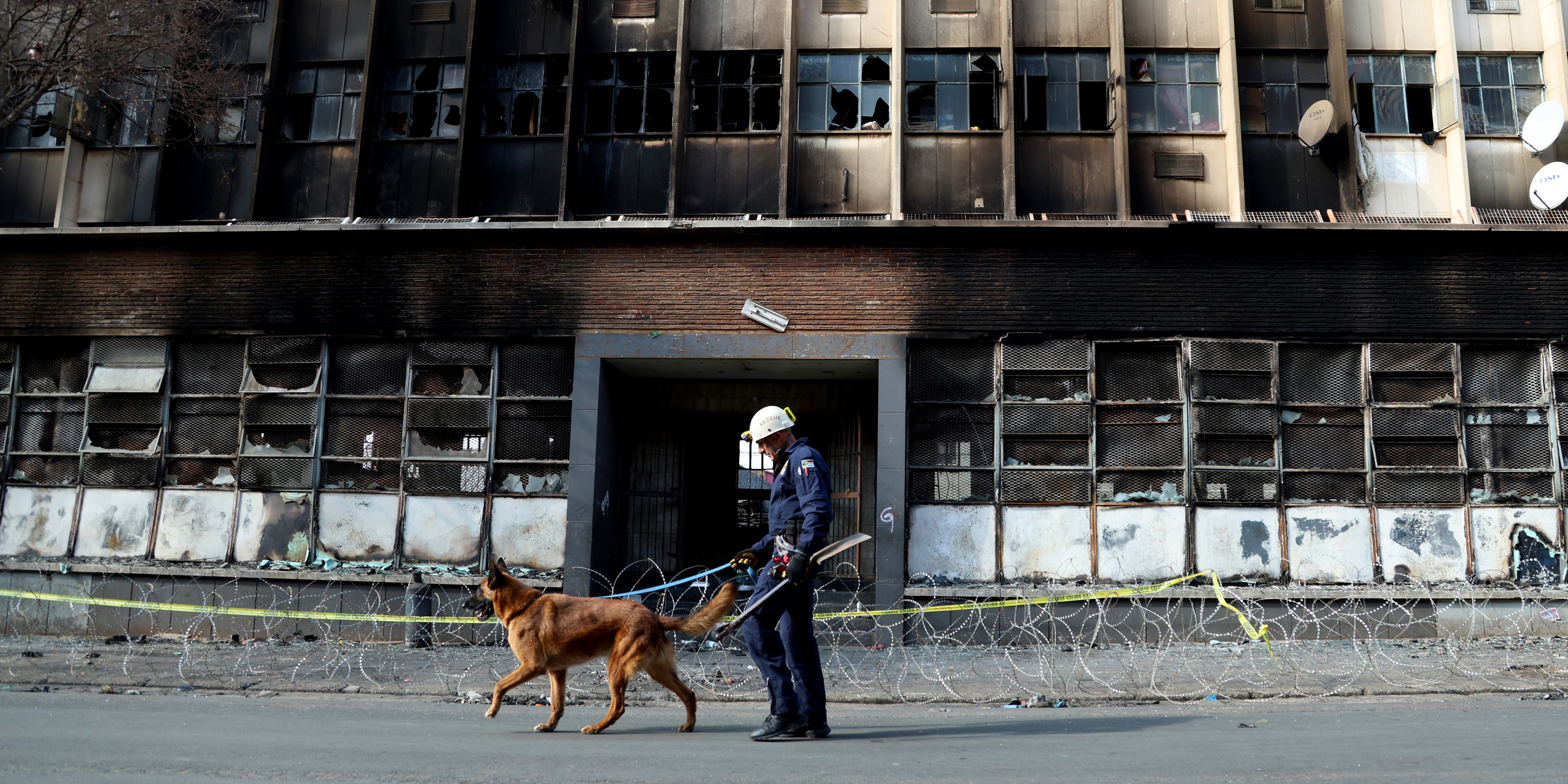Survivors of the Marshalltown, Johannesburg, fire that claimed the lives of 76 people are trying to pick up the pieces and continue with their lives. One challenge they face is ensuring their children have access to education.
About 20 children who survived the fire in the Usindiso building and are living in temporary accommodation in Denver, Johannesburg, have not attended school since the fire on 31 August — more than 310 days ago.
Some have not been placed in schools for the current year, while others have been assigned to schools far from the accommodation.
Many unemployed parents cannot afford transportation costs for their children to travel daily from Denver to schools in the Johannesburg CBD, where a number were placed. There is also no early childhood development centre or programme for the younger children.
In the aftermath of the fire, various departments, including the education department, committed to protecting and supporting the survivors. This support included ensuring that children were placed in schools, provided with accommodation and necessities and given trauma counselling. However, many of these commitments have not been met.
Read more in Daily Maverick: City of Joburg silent after inquiry finds it responsible for Usindiso fire
Inadequate placements
S’phiwe Ngcobo, from KwaNongoma in KwaZulu-Natal, lived in the Usindiso building for four years. Ngcobo lost one of her children in the fire and was relocated by the government to the temporary accommodation in Denver.
The unemployed mother’s youngest daughter was placed at Denver Primary School, but for some time could not attend classes because her mother could not afford to buy her a uniform. Eventually, a well-wisher stepped in and bought the girl a uniform.
Sithembiso Promise Ndebele, a mother of two, is in a similar situation. Initially, her 10-year-old boy, who has a disability, was placed at a special needs school in Booysens. She had to pay R1,200 a month for his transport to and from the school. Her other child was not placed in a government school and she pays R800 per month for him to attend a private school.
Ndebele also had to provide at least four adult diapers per day for her son. Ndebele, who is unemployed, said she could not afford these costs. Sponsored by a good samaritan, her son has since moved to a boarding school.
Department’s attempts
According to a government list, as of December 2023, 30 learners staying at the temporary accommodation in Denver had yet to be placed in schools — 18 in primary schools and 12 in secondary schools — while the number of those with early childhood development needs was unknown.
The Gauteng manager of the SA Human Rights Commission (SAHRC), Zamantungwa Mbeki, said the SAHRC and the Gauteng Department of Education visited the Denver site (now known as Shalazile camp) late last year to identify learners who needed to be placed at schools.
Mbeki said families were registered with the Gauteng Department of Education and the children were subsequently placed in schools.
However, some children are still unplaced. According to the families affected, the list didn’t cover all of the learners who needed to be placed, while some parents or guardians were trying to relocate their children to meet their educational needs and financial means.
Gauteng Department of Education spokesperson Steve Mabona said: “Parents of children that are out of schools are advised to visit their nearest schools (on school days) or district office or the provincial office for assistance. We always encourage parents to ensure that learners of schoolgoing ages are at school at all times.”
Right to basic education
Human rights activist Andrew Chinah, who has been working closely with the survivors of the fire, said that over the weekend he received information about another 32 children facing school placement issues.
He said these were children from families who had not moved to the Shalazile camp.
“What the education department thinks is that learners are in school but what they are not cognisant of [is] the fact that some children have been relocated to KZN, for example, separated from their families and known environment only because they were told there was no space in Gauteng schools.”
He said it was difficult for parents to get children placed in schools because many had lost their documents in the fire.
Equal Education is engaging with the relevant stakeholders to ensure the learners are placed in schools.
Yolisa Piliso, an attorney with the Equal Education Law Centre, said: “When dealing with numbers, particularly with learners out of school, it’s challenging to get accurate figures because the situation is constantly changing. You may report five learners today, and the number changes tomorrow. But even one learner out of school is too many.
“We have met with more than 20 learners in Denver and are currently engaging relevant stakeholders for their placement. It’s also crucial to consider children who need early childhood development, as this is closely linked to their right to basic education.” DM





